36 unions and the parliamentary group from Amizero y’Abarundi coalition have protested against the withdrawal of money from workers’ salary to contribute to the elections in 2020. They denounce the use of force.
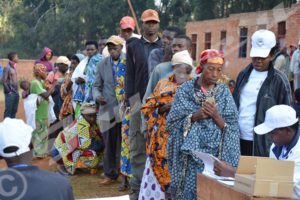
The population called to contribute to the elections of 2020The population called to contribute to the elections of 2020
Voices are raised to challenge the joint order of the Ministers of the Interior and Finance establishing the modalities of the contribution to the elections. The recent protest known to the public is that of 25 MPs from Amizero y’Abarundi Coalition.
Basically, they oppose any withdrawal of money from workers’ salaries and speak of an unconstitutional order. For them, it is out of the question to endorse a process that they do not consider credible and untimely at all. The electoral budget has not been established. This raises questions about the scales of contributions that are not based on any logic, hence the uncertainty regarding the efficiency of the collection.
Meanwhile, Burundi Confederation of Trade Unions, COSYBU and Burundi’s Confederation of Free Trade Unions CSB had already broken the silence last week. In a letter sent to the Ministers of the Interior and Finance, they call for the opening of a dialogue. While waiting for the conclusions of the latter, these confederations ask to defer any deduction from pay related to this contribution.
Civil servants complain
We are on the eve of the start of deduction of money from the salaries of civil servants which is due to begin with the salary of January 2018. Many already fear what awaits them. For instance, the 47 year-old Balthazar is supposed to earn more than 500 thousand. However, he has two bank credits and only gets 117 thousand per month. “The order requires me to give 30 thousand Burundian francs a month.
So, I will have 87 thousand left, “said Balthazar. Nadine, a widow, says she is part of the nursing staff. The ministry in which she works also provides for individual contributions, an assessment on behalf of the Ministry of Health. She is therefore faced with a kind of double contribution.
“How will I cover all other expenses in my house? Stop feeding my children to contribute for the 2020 elections? ”
Minister of the Interior Pascal Barandagiye said he would engage in a dialogue with trade unionists but warned them against being an obstacle to the contribution process”. He talked about promoting democracy and a traditional process that was done in the past.
He nevertheless called on those who would like to evade this civic duty to report it in writing.
>>Reactions
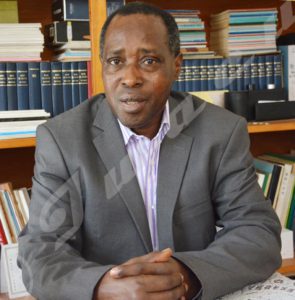 Léonce Ngendakumana: “Calamity contribution?”
Léonce Ngendakumana: “Calamity contribution?”
The Vice President of Sahwanya FRODEBU party speaks of legitimate protests by all the people who are called upon to contribute. He deplores what he calls a forced tax that has not been adopted by the parliament to become a law. For Léonce Ngendakumana, it is true that the Constitution provides for the contribution of the population but in case of calamity. Nevertheless, he wonders: “Can we say that this contribution to the elections is a calamity? Otherwise, nothing should be imposed to the population, he said.
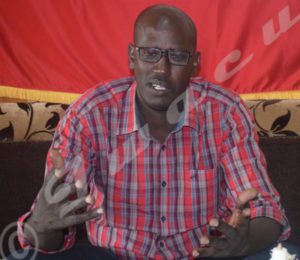 Abel Gashatsi: “Against an imposed contribution”
Abel Gashatsi: “Against an imposed contribution”
The president of UPRONA party understands the necessity of contributing to the elections by the population, especially since foreign partners decided not to finance the elections. Nevertheless, Abel Gashatsi says the contribution must not be imposed but are instead voluntary. The government should therefore hold talks with these civil servants to clarify certain things and decide on some contribution modalities.
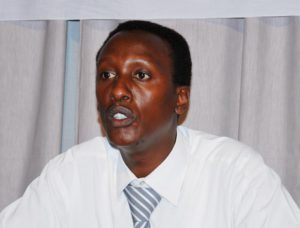 Vital Nshimirimana: “The social malaise already perceptible”
Vital Nshimirimana: “The social malaise already perceptible”
This human rights activist speaks of a forced contribution to organize the referendum in order to preserve the regime in place. Vital Nshimirimana speaks of a founded, legitimate and just demand from trade unionists and parliamentarians. But there is no illusion. “We can anticipate the response of the government when we know that this regime leads this country with an iron fist. He notes a social discomfort already visible and indicates that the referendum project will further destabilize the country and worsen the ongoing conflict.
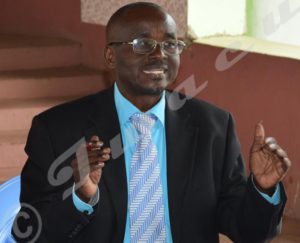 Hamza Venant Burikukiye: “A pride for every citizen”
Hamza Venant Burikukiye: “A pride for every citizen”
The spokesperson for the integral platform of the civil society, PISC-Burundi, indicates that contributing to the elections is a citizen duty and a positive solidarity. Hamza Venant Burikukiye says it is normal for the unions to claim the dialogue. “This is a promise of the government. He says he does not understand the elected MPs from Amizero y’Abarundi coalition who have a national mandate but who refuse to honor the will of the population. He concluded: “It should be a pride for every citizen to strengthen democracy in his country.”
Gray areas related to this process
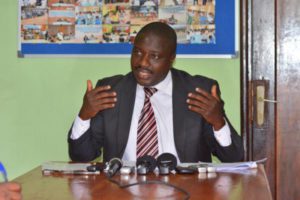 Faustin Ndikumana, Chairman of PARCEM, the organization that fights for good governance, raises several gray areas that need clarification:
Faustin Ndikumana, Chairman of PARCEM, the organization that fights for good governance, raises several gray areas that need clarification:
• The estimated cost of these elections should be qualified. Set an election budget for a correct assessment of what needs to be collected
• Know which institution r organ will guarantee transparency in the collection of these funds like Burundi Revenue Authority-OBR.
• Is the bank account where the contribution is paid a sub-account of the Treasury Single Account managed by the Minister of Finance or the management will be joint?
• There is an election funding which is somewhat different through the collection. First there is that made by the State through OBR as well as that of the contributions of the population. Who will manage everything?
• At what rate will the collection report be done? 3 months or 6 months, will we be consulted?
• All of his questions should be answered through a legal reference that has not yet been designed. The Constitution states that any act on the collection of funds is within the scope of the law. The government sticks to drafting a law, the Parliament studies it and the Constitutional Court decides on the constitutionality of this law.
“A game of words”
This contribution campaign was launched by President Nkurunziza in person. The word “volunteer” was reflected in the publicity of this project. For the critics who saw it as a disguised tax, the presidential office reassured them by hammering this magic word: “voluntary.”
But that changed very quickly. The Minister of the Interior met the provincial governors and all applauded for a contribution by the entire population.
It was only about looking for some provisions of the Constitution that relate to the strengthening of democracy and solidarity except that Article 70, paragraph 4, speaks of appeal for national solidarity only when there is natural calamity.
And everything happened quickly. Minister of the Interior and Finance Minister issued an order ruling on the scales of contributions of the entire population. The word voluntary has given way to the verb “to order”, making this contribution obligatory.
They have just forgotten one thing: Burundians are reluctant to see their money withdrawn without their endorsement. Many of these civil servants who have bank credits can hardly make ends meet.
In addition, the ordinance provides for a social dialogue, a sensitization of the project which obviously has not yet taken place. But jurists and historians show the dangers of an unpopular law, which has not been sufficiently explained to the population. At best, the people lose their trust in these leaders perceived as oppressors. At worst, there is an uprising against this law. All that must be avoided at all costs. Because the key is there: federate the entire population behind a cause that is considered fair and logical to avoid any discomfort and frustration.
Written by Agnès Ndirubusa and translated by Pierre Emmanuel Ngendakumana

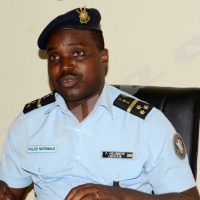
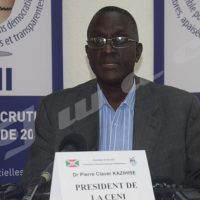
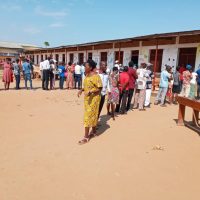
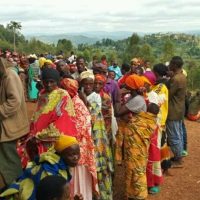
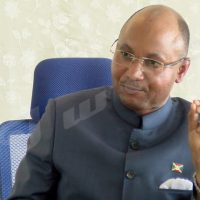













 IWACU Open Data
IWACU Open Data

